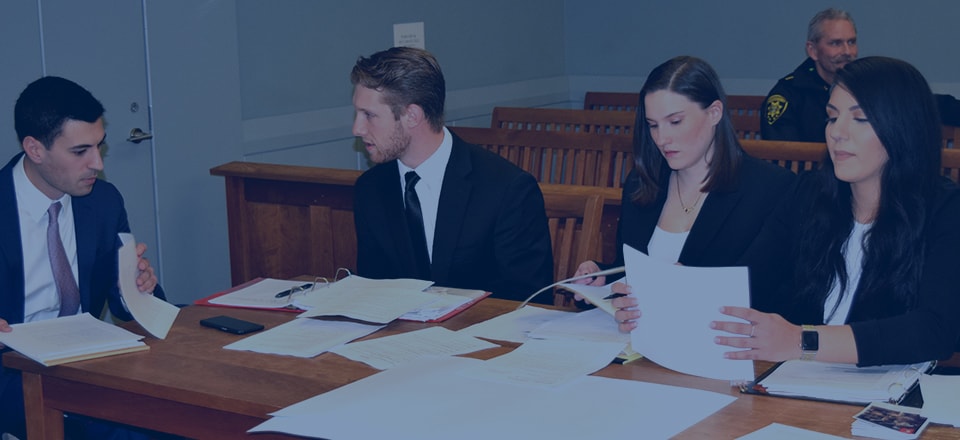GQI Weekly Programs
The GQI Weekly Programs
Each online CLE program will provide CLE credit for “experienced” NYS attorneys who comply with the applicable requirements of the NYS Office of Court Administration. Beginning on Monday, June 29, 2015 CLE programs will be released and available to view on a weekly basis for 50 weeks. The schedule for the weekly CLE programs is as follows:
Chapter 1: The Statutory Purpose, Humane Intentions, and Evolution of Mental Hygiene Law Article 81
1. The Enactment of and Amendments to Mental Hygiene Law Article 81
2. The Standard for and Alternatives to the Appointment of a Guardian
3. A Summary of the Laws that Complement and/or Conflict with Mental Hygiene Law Article 81
Chapter 2: The Aging Process: Life’s Challenging Realities Have Serious Legal Consequences
4. The Aging Process: What Will and May Happen to Our Bodies and Minds as We Grow Older (Includes live CLE component)
Chapter 3: Article 81 Stakeholders, Participants, and Interested Persons
5. Stakeholders, Participants, and Interested Persons, Including MHLS
6. Part 36: Rules that Apply to Attorney Court Appointees
7. Private Matters in a Public Forum
Chapter 4: The Statutory Framework: Mandated Proceedings, Required Time Frames, and the Language of Article 81
8. Mandated Time Frames
9. The Language of Article 81
10. De Jure and De Facto Judicial Requirements and Discretion in Mental Hygiene Law Article 81 Proceedings
Chapter 5: What Guardianship Lawyers and Judges Need to Know About How Older (Alleged) Incapacitated Persons Pay for Healthcare, With a Focus on Medicare and Medicaid Eligibility and Services
11. What Guardianship Lawyers and Judges Need to Know About How Older (Alleged) Incapacitated Persons Pay for Healthcare, With a Focus on Medicare and Medicaid Eligibility and Services (Includes live CLE component)
Chapter 6: Alternatives to the Appointment of a Guardian
12. If and How Should Guardianship Attorneys and Judges Assess the Mental Capacity and Needs of an Alleged Incapacitated Person? (Includes live CLE component)
13. Alternatives to the Appointment of a Guardian
14. Legal, Financial, and Taxation Issues When Care is Provided by a Family Member and/or Non- Professional Caregivers
Chapter 7: The Guardianship Petition
15. Initial Meeting with and Evaluation of the Potential Petitioner
16. Preparation & Submission of the Petition
17. Mental Hygiene Law Article 83
18. Provisional Remedies and Other Emergency Relief
19. Ethical Considerations for Petitioner’s and Cross-Petitioner’s Attorney (Ethics)
20. TBD based on participant input
Chapter 8: The Court Evaluator
21. The Role of the Court Evaluator
22. Practical Guidelines for the Court Evaluator: Part One
23. Practical Guidelines for the Court Evaluator: Part Two
24. Experiential Wisdom: Attorneys Share Their Experiences as Court Evaluators
25. Ethical Challenges the Court Evaluator May Confront (Ethics)
Chapter 9: Privately Retained and Court Appointed Counsel for the Alleged Incapacitated Person
26. Ethical and Practical Considerations for the Alleged Incapacitated Person’s Privately Retained Counsel (Ethics)
27. Does the Alleged Incapacitated Person Have the Capacity to Retain Counsel? (Includes live CLE component)
28. Appointment and Duties of the Alleged Incapacitated Person’s Court Appointed Counsel
29. Experiential Wisdom: The Alleged Incapacitated Person’s Counsel
30. TBD based on participant input
Chapter 10: The Constitutional andConditional Rights and Obligations ofthe Alleged Incapacitated Person
31. Must the Alleged Incapacitated Person Meet with the Court Evaluator, Communicate with Counsel and/or Participate in the Guardianship Hearing? (Includes live CLE component)
Chapter 11: The Guardianship Hearing
32. Non-Contested Guardianship Hearing for an Alleged Incapacitated Person and/or a Person in Need of a Guardian
33. The Contested Guardianship Hearing
34. The Rules of Evidence (Includes live CLE component over two days)
35. Special Considerations for Hearings
Chapter 12: The Decision: Required Court Findings
36. Required Court findings at the Conclusion of the Guardianship Hearing
Chapter 13: The Guardianship Order
37. How to Prepare and Submit a Proposed Guardianship Order
38. How to Prepare and Submit a Proposed Counter Guardianship Order
Chapter 14: Court Ordered (Approved) Fees For Attorneys and Court Appointees That Appear in Guardianship Hearings
39. How are Fees Requested and Determined in Article 81 Guardianships? Part One: Petitioner and Cross-Petitioner
40. How are Fees Requested and Determined in Article 81 Guardianships? Part Two: Court Appointees
41. A Review of Key Cases
Chapter 15: The Selection, Appointment, Qualification, and Duties of the Guardian
42. Qualification to Serve as Guardian43. Guidelines for the Property Management Guardian
44. Guidelines for the Personal Needs Guardian
45. Experiential Wisdom: The Critical Role a Guardian Plays in the Life of an Incapacitated Person: Two Case Studies
46. The Role of the Community Guardian
Chapter 16: The Role of the Court Examiner
47. The Role of the Court Examiner
Chapter 17: Guardian and Court Examiner Compensation
48. Guardian and Court Examiner Compensation
Chapter 18: Post-Appointment Litigation
49. Post-Guardianship Appointment Litigation (Includes live CLE component over three days)
Chapter 19: The Incapacitated Person’s Death
50. Responsibilities of the Court, Guardian, and Other Interested Parties upon the Incapacitated Person’s Death

